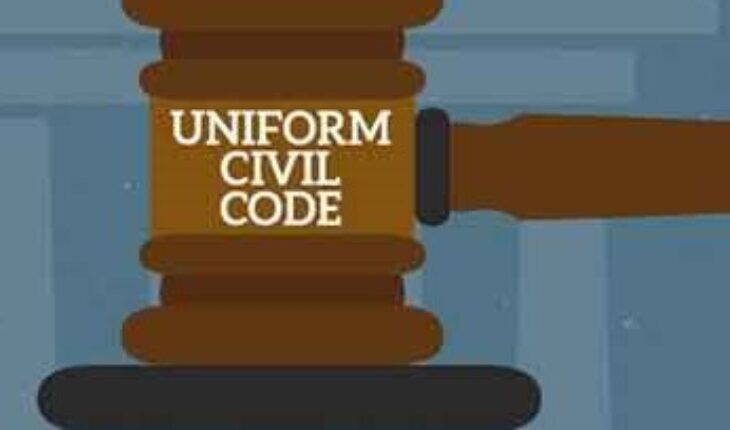
The Uniform Civil Code (UCC) stands as a pillar of contention and debate in India, reflecting the intricate tapestry of its social, cultural, and legal fabric. At its core, the UCC proposes a unified legal framework governing personal matters like marriage, divorce, inheritance, and adoption, irrespective of an individual’s religious affiliation or community. While advocates champion its potential to foster equality, secularism, and social justice, opponents raise valid concerns about its impact on religious freedom, cultural diversity, and minority rights. In this article, we delve into the merits and pitfalls of the Uniform Civil Code in India to discern whether it serves as a boon or bane for the nation.
Boon
1. Promotion of Gender Equality : Advocates argue that the implementation of a Uniform Civil Code would be a significant stride towards gender equality. Presently, India’s diverse personal laws often result in discriminatory practices against women. A uniform legal framework would ensure equitable rights and opportunities for women across all communities, thereby empowering them and fostering gender justice.
2. Secularism and National Integration: The secular ethos enshrined in India’s Constitution mandates the separation of religion from state affairs. However, the existence of disparate personal laws based on religious affiliations challenges this principle. Implementing a Uniform Civil Code would reaffirm India’s commitment to secularism by treating all citizens equally under the law, thus fostering national integration and social cohesion.
3. Simplification of Legal System: India’s legal system is currently fragmented, with different personal laws applying to various religious communities. This fragmentation often leads to legal complexities and inconsistencies, hindering access to justice for many citizens. A Uniform Civil Code would streamline the legal system, simplifying procedures and ensuring uniformity and consistency in the application of laws across the country.
Bane
1. Threat to Minority Rights : Opponents of the Uniform Civil Code express concerns about its potential threat to minority rights and cultural identities. India boasts a diverse mosaic of religious and cultural traditions, each with its unique customs and practices. Imposing a uniform legal code could undermine the autonomy of minority communities and erode their distinct cultural identities.
2. Resistance from Religious Institutions: Religious institutions wield significant influence in shaping personal laws and customs within their respective communities. The implementation of a Uniform Civil Code would challenge the authority and autonomy of these institutions, likely leading to resistance and opposition from religious leaders and organizations. Any attempt to impose a common civil code without adequate consultation and consensus-building could lead to social unrest and discord.
3. Complexities of Implementation: The practical implementation of a Uniform Civil Code poses numerous challenges, given the diverse nature of Indian society. Customary practices and traditions vary widely across different regions and communities, making it challenging to reconcile conflicting laws and norms. Moreover, any attempt to impose a uniform legal code without addressing these complexities could exacerbate existing social tensions and divisions.
In North India, particularly within Hindu marriage customs, variations abound, illustrating the complexity of implementing a Uniform Civil Code. For instance, in North Indian Hindu families, a boy cannot marry his maternal uncle’s daughter due to established traditions. However, in regions like Maharashtra and some Southern states, such marriages are permissible. This disparity underscores the challenge of enforcing a Uniform Civil Code amidst the diverse customs and traditions prevalent across India.
Conclusion:
The debate surrounding the Uniform Civil Code in India encapsulates the nation’s intricate socio-cultural dynamics and underscores the need for a nuanced approach. While proponents advocate for its potential to advance equality, secularism, and social justice, opponents caution against its potential infringement on minority rights and cultural diversity. As India continues its journey towards progress and modernization, striking a delicate balance between uniformity and diversity will be imperative in ensuring that the Uniform Civil Code serves the interests of all citizens while respecting the country’s rich tapestry of cultures and traditions. Ultimately, the path forward on this issue must be guided by dialogue, consensus-building, and a steadfast commitment to upholding the principles of justice, equality, and inclusivity enshrined in the Indian Constitution.
Jay Devkar is a practicing Attorney & Advocate at Supreme Court of India and High Courts of various Jurisdictions, Tribunals and Commissions.





